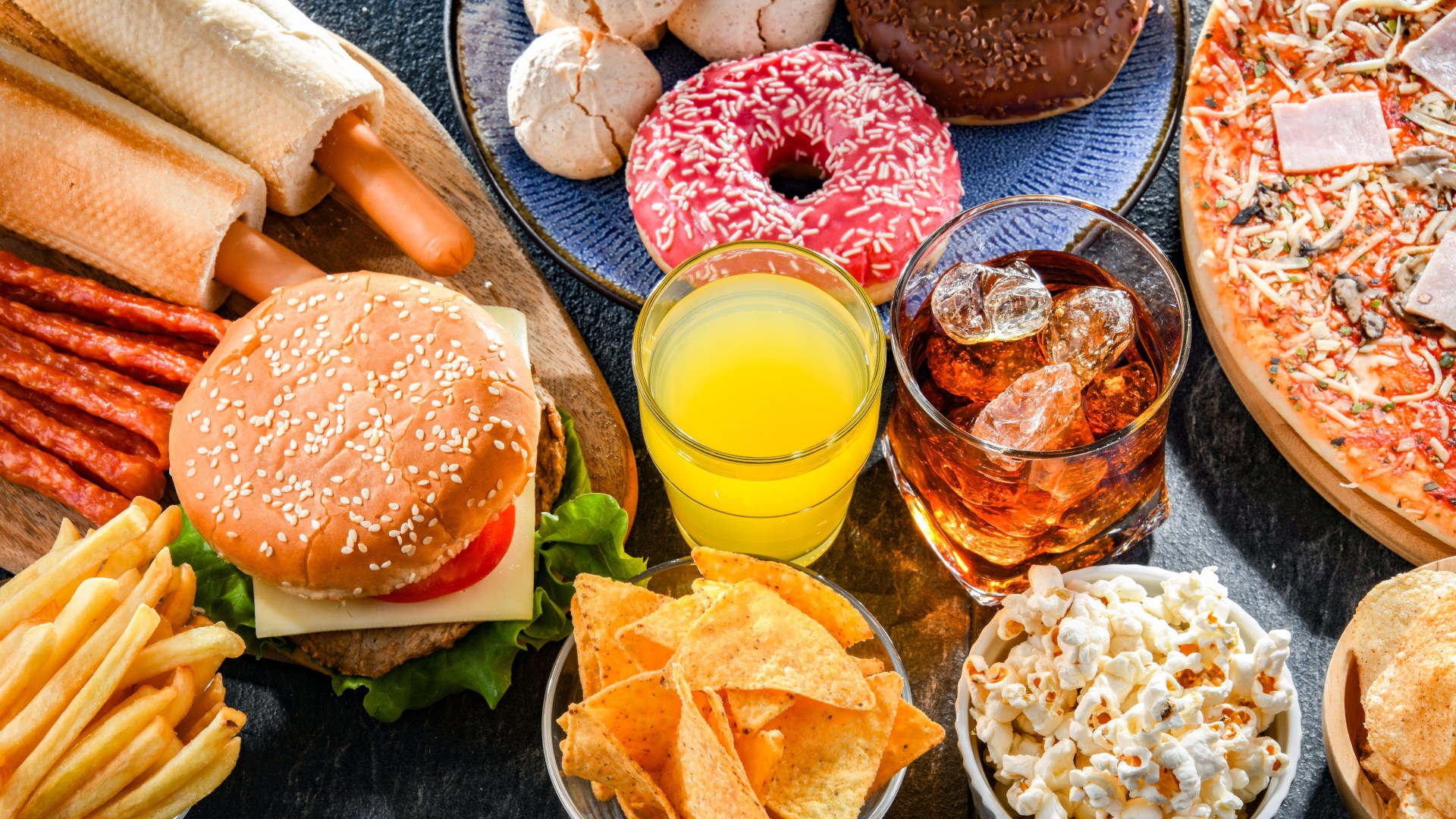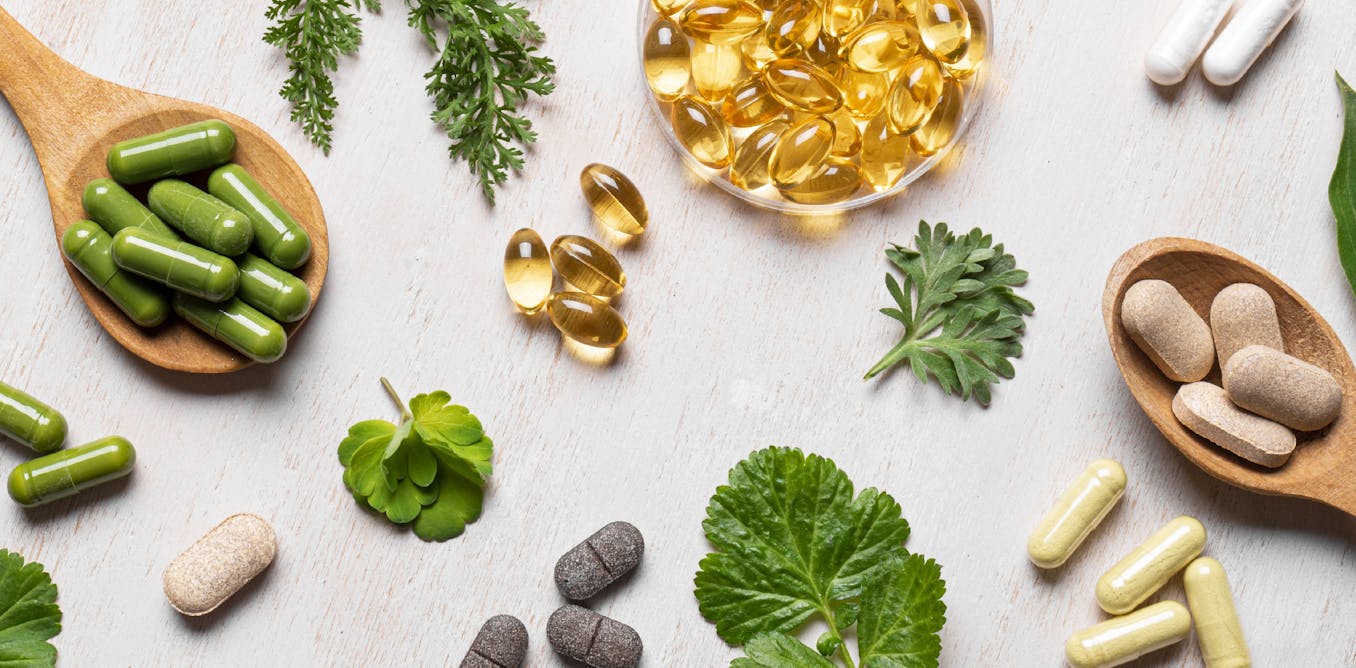POOR diet plays a “vital” role in the growth and progression of bowel cancer, new research suggests.
US scientists have uncovered a potential link between the Western diet – dominated by ultra-processed foods (UPF) and unhealthy oils – and the chronic inflammation that leads to tumours.
2
UPFs are high in added sugar, fat and salt, and low in protein and fibre.
Examples include ham, sausages, burgers, ice cream, crisps and mass-produced bread.
Bowel cancer, also called colon cancer, is now the third most common cancer in Britain, with 41,596 Brits diagnosed in 2021.
It is the UK’s second deadliest cancer, claiming 16,000 lives each year.
And it is the second leading cause of cancer-related deaths in the US.
However, nine in 10 patients survive it if diagnosed at the earliest stage, according to Bowel Cancer UK.
The Sun’s No Time 2 Lose campaign, spearheaded by Dame Deborah James, has called for earlier testing and treatments to improve survival rates in Britain.
Previous studies have suggested popular junk food diets could be behind the surge in cases.
Researchers at the University of South Florida and Tampa General Hospital Cancer Institute have already made major advancements in the understanding of bowel cancer.
The project’s first study examined how processed foods are likely hindering the body’s natural healing processes.
The findings, published online by the journal Gut, suggest bowel cancer may be fuelled by the food on our plates.
Dr Timothy Yeatman, of the University of South Florida, said: “It is well known that patients with unhealthy diets have increased inflammation in their bodies.
“We now see this inflammation in the colon tumours themselves, and cancer is like a chronic wound that won’t heal.
“If your body is living off of daily ultra-processed foods, its ability to heal that wound decreases due to the inflammation and suppression of the immune system that ultimately allows the cancer to grow.”
Dr Yeatman says the findings emphasise the “urgent” need to re-evaluate the Western diet, which typically consists of excessive consumption of added sugars, saturated fats, ultra-processed foods, chemicals and inflammatory seed oils.

2
‘Resolution medicine’
Seperate studies showed an imbalanced diet also plays a role in other diseases – including Alzheimer’s, diabetes and cardiovascular conditions.
Professor Ganesh Halade, also of the University of South Florida, said: “Our bodies are designed to actively resolve inflammation through bioactive lipid compounds derived from the healthy fats, like avocados, that we consume.
“Bioactive lipids are very small molecules derived from the foods that we eat and, if the molecules are coming from processed food products, they directly imbalance the immune system and drive chronic inflammation.”
Prof Halade used a highly sensitive analytical technique to identify trace amounts of lipids in 162 tumour samples from patients at Tampa General Hospital.
The tumours were frozen within 30 minutes of removal and transported to his lab.
How ultra processed is YOUR kitchen?
Ultra processed foods (UPFs) were defined by Brazilian researchers who made the NOVA classification system.
It breaks foods into groups depending on how processed they are. The most natural foods are in group 1, while the most processed are in group 4.
The groups do not entirely indicate how healthy a food is. However, it does indicate how processed it is – and studies have linked UPFs to a number of diseases.
How does your kitchen compare to the following groups?
Unprocessed or minimally processed foods (group 1)
- Vegetables and fruits (fresh or frozen)
- Dried fruits with no added sugar, honey, or oil
- Grains and legumes (chickpeas, lentils)
- Meat, poultry, fish, seafood, eggs
- Milk without added sugar
- Plain yoghurt with no added sugar
- Nuts and seeds
- Spices and herbs
- Tea, coffee, water
Processed culinary ingredients (group 2)
- Iodized salt
- Salted butter
- Sugar and molasses from cane or beet
- Honey extracted from combs
- Syrup from maple trees
- Vegetable oils crushed from olives or seeds
- Butter and lard from milk and pork
- Starches extracted from corn and other plants
- Vegetable oils with added anti-oxidants
- Vinegar with added preservatives
Processed foods (group 3)
- Canned vegetables, fruits, and legumes
- Fruits in syrup
- Salted or sugared nuts and seeds
- Salted cured or smoked meats
- Canned fish
- Artisanal bread and cheese
Ultra-processed foods (group 4)
- Pop and fruit drinks
- Sweetened yoghurt
- Sweet or savoury packaged snacks (e.g., cookies)
- Candies and cake mixes
- Mass-produced packaged breads and buns
- Margarine and spreads
- Breakfast cereals
- Cereal and energy bars
- Energy drinks
- Instant soups, sauces, and noodles
- Poultry and fish nuggets, hot dogs
- Many ready-to-heat products: pre-prepared pies, pasta, and pizza dishes
Inside the tumours, the researchers observed an excess number of molecules that promote inflammation and a shortage of those that help resolve it and promote healing.
The research team say their findings pave the way for a new, natural approach – called “resolution medicine” – which focuses on restoring balance in the patient’s diet to treat bowel cancer more effectively.
Dr Yeatman said: “A human’s immune system can be extremely powerful and drastically impact the tumour microenvironment, which is great if harnessed correctly for health and wellness.
“But not if it’s suppressed by inflammatory lipids from processed foods.”
‘This has the potential to revolutionise cancer treatment’
He says resolution medicine would focus on reversing inflammation using healthy, unprocessed foods rich with omega-3 fatty acids and derivatives of fish oil – called “specialised pro-resolving mediators” – to restore the body’s healing mechanisms along with balanced sleep and exercise.
Examples of healthy, unprocessed foods include crab, salmon, halibut, spinach, brussels sprouts, seaweed, algae and grass-fed, pasture-raised meats.
Dr Yeatman said: “This has the potential to revolutionise cancer treatment, moving beyond drugs to harness natural healing processes.”
He added: “It’s a vital step toward addressing chronic inflammation and preventing diseases before they start.”
The research team say early trials using specialised derivatives of fish oil have shown “promise” in addressing inflammation at its root cause.
The trials are underway, and the research team will continue studying resolution medicine and its impact on patient treatment and disease prevention.
What are the symptoms of bowel cancer?
Bowel cancer can affect anyone, whatever your age, gender, ethnicity or where you live.
Symptoms can include:
- Bleeding from your bottom
- Blood in your poo
- A change in your pooing habits.
- You might be going more or less often, or have diarrhoea or constipation that might come
- Losing weight but you’re not sure why feeling very tired all the time but you’re not sure why
- A pain or lump in your tummy
Having these symptoms doesn’t always mean you have bowel cancer, but it’s still important to find out what’s causing them.




